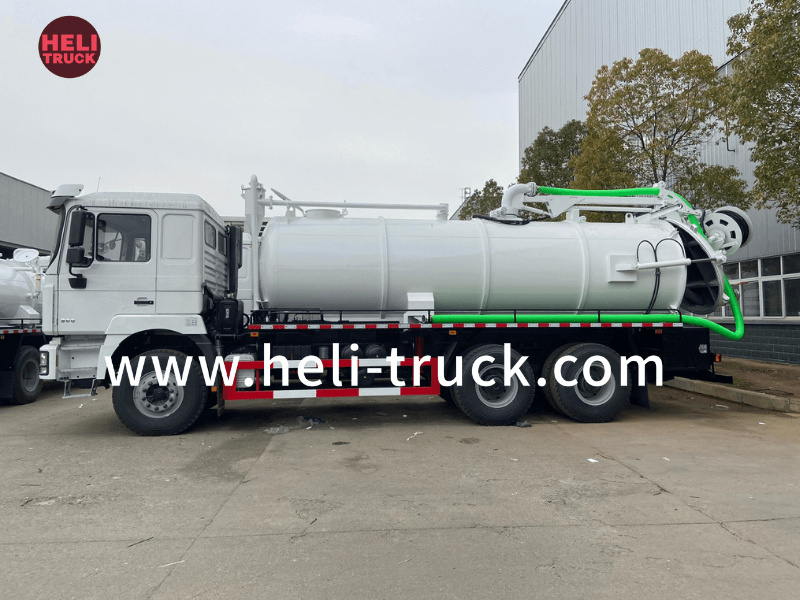Introduction
Garbage compactor trucks play a crucial role in waste management systems by collecting and compacting waste materials efficiently. These specialized vehicles are equipped with mechanisms to compress waste, allowing for more waste to be transported in each trip. However, operating garbage compactor trucks comes with various risks and safety concerns that need to be addressed to protect both the operators and the public. In this article, we will explore the importance of safety certifications in garbage compactor trucks, how they contribute to ensuring safety and efficiency, and the various certifications that are relevant to these vehicles.
Importance of Safety in Garbage Compactor Trucks
Garbage compactor trucks are heavy-duty vehicles that operate in challenging environments, such as crowded urban areas and busy streets. The nature of their work involves handling potentially hazardous materials and interacting with the public. Therefore, safety is of utmost importance when it comes to the design, operation, and maintenance of these trucks.
Safety certifications play a vital role in ensuring that garbage compactor trucks meet specific safety standards and regulations. These certifications are issued by regulatory bodies and organizations that set safety guidelines for the design, construction, and operation of commercial vehicles. By adhering to these certifications, manufacturers and operators of garbage compactor trucks can demonstrate their commitment to safety and quality.
Certifications for Garbage Compactor Trucks
Several safety certifications are relevant to garbage compactor trucks, covering different aspects of the vehicle's design, construction, and operation. Some of the key certifications include:
1. National Institute for Occupational Safety and Health (NIOSH) Certification: NIOSH is a federal agency that conducts research and provides recommendations for occupational safety and health. NIOSH certification for garbage compactor trucks ensures that the vehicle meets specific safety standards related to operator protection, ergonomics, and ventilation systems.
2. Occupational Safety and Health Administration (OSHA) Certification: OSHA is another federal agency that sets and enforces safety and health regulations in the workplace. OSHA certification for garbage compactor trucks covers a wide range of safety requirements, including operator training, hazard communication, and personal protective equipment.
3. Society of Automotive Engineers (SAE) Certification: SAE is a global association of engineers and technical experts in the aerospace, automotive, and commercial vehicle industries. SAE certification for garbage compactor trucks focuses on vehicle performance, design standards, and testing procedures to ensure safe and efficient operation.
4. International Organization for Standardization (ISO) Certification: ISO is an international standard-setting body that develops and publishes standards for various industries. ISO certification for garbage compactor trucks includes standards related to quality management, environmental management, and occupational health and safety.
5. National Truck Equipment Association (NTEA) Certification: NTEA is an association that represents companies in the work truck industry, including manufacturers, distributors, and upfitters. NTEA certification for garbage compactor trucks ensures compliance with industry standards and best practices for vehicle equipment and accessories.
Garbage Compactor Truck noise levels of Safety Certifications in Garbage Compactor Trucks
Obtaining safety certifications for garbage compactor trucks offers several benefits to manufacturers, operators, and the public. Some of the key benefits include:
1. Compliance with Regulations: Safety certifications ensure that garbage compactor trucks comply with federal, state, and local regulations governing the operation of commercial vehicles. By meeting these requirements, manufacturers and operators can avoid penalties and legal issues related to safety non-compliance.
2. Enhanced Operator Safety: Garbage compactor truck operators are exposed to various risks during their work, including injuries from moving parts, falls from height, and exposure to hazardous materials. Safety certifications help to mitigate these risks by mandating safety features, training programs, and operational guidelines that protect operators from harm.
3. Improved Vehicle Performance: Safety certifications also contribute to the overall performance and efficiency of garbage compactor trucks. By following design and construction standards outlined in the certifications, manufacturers can ensure that the vehicles operate smoothly, reliably, and safely under various conditions.
4. Public Safety and Environmental Protection: Garbage compactor trucks play a critical role in maintaining public health and environmental cleanliness by collecting and disposing of waste materials. Safety certifications help to prevent accidents, spills, and emissions that could harm the public and the environment, thus promoting sustainable waste management practices.

5. Reputation and Trust: Obtaining safety certifications demonstrates a commitment to safety, quality, and professionalism in the operation of garbage compactor trucks. This can enhance the reputation of manufacturers and operators in the industry, building trust with clients, regulators, and the community.
Conclusion
Safety certifications are essential for ensuring the safe and efficient operation of garbage compactor trucks in waste management systems. By obtaining relevant certifications from recognized organizations and regulatory bodies, manufacturers and operators can demonstrate their compliance with safety standards and regulations, protect their workers and the public, and enhance the performance and reliability of their vehicles. Investing in safety certifications is not only a legal requirement but also a strategic decision that benefits both the business and the community in promoting a clean, safe, and sustainable environment.
